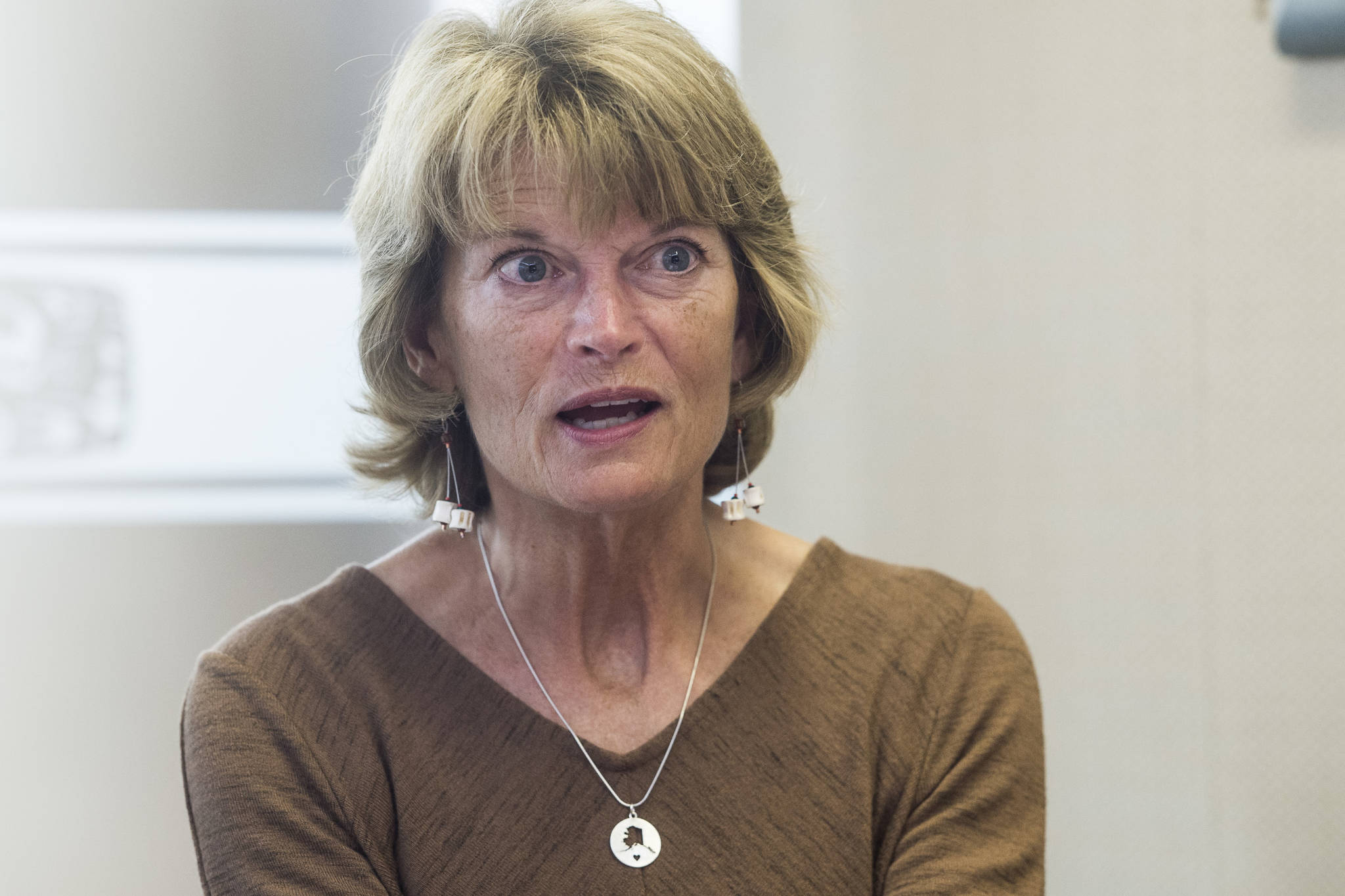U.S. Sen. Lisa Murkowski, R-Alaska, announced the introduction of legislation Thursday meant to address domestic violence in rural Alaska.
The Alaska Tribal Public Safety Empowerment Act would expand the jurisdiction of the 2013 Violence Against Women Act (VAWA) on a pilot basis for five years, according to the text of the bill.
A press release from Murkowski’s office said VAWA “provided that tribes have the power to prosecute certain non-Natives who violate qualifying protection orders or commit domestic or dating violence against Indian victims in Indian country.”
But that act was limited to crimes committed within the jurisdiction of a tribe’s territory which left Alaska Native women unable to obtain domestic violence protective orders, according to the release.
By comparison, the Empowerment Act would expand jurisdiction to Alaska Native communities to be able to address what Richard Peterson, president of Central Council Tlingit and Haida Indian Tribes of Alaska, called a “jurisdictional vacuum.”
“The Alaska Tribal Public Safety Empowerment Act is a step in the right direction in recognizing the inherent authority of Indian Tribes to keep their communities safe by reaffirming tribal civil and criminal jurisdiction within Alaska Native villages,” Peterson stated in the release. “Far too often nothing happens when a non-Indian commits certain crimes against our women and citizens because of the complicated jurisdictional scheme and Supreme Court precedent.”
The legislation has only been introduced, and has a long road ahead of it before it could possibly be signed into law.
The bill will go on to the Indian Affairs Committee in the U.S. Senate where it will be reviewed and possibly altered, according to Sen. Murkowski’s communications director Karina Borger.
The bill could then be added to a package of bills or voted on as a standalone bill Borger said, before it leaves the Senate and is passed on to the House of Representatives.
“Given the Indian Country problems,” Michelle Denmert, law and policy consultant for the Alaska Native Women’s Resource Center said in the release, “the (act) will provide the recognition and hopefully resources needed … to begin reassuming the local control over local issues and holding those who commit the specified crimes in our communities responsible.”
Because the act is a pilot program, it would apply only “not more than five” tribes selected by the U.S. Attorney General’s office, according to the bill. The tribes will be selected by the Attorney General in consultation with the Secretary of the Interior.
• Contact reporter Peter Segall at 523-2228 or psegall@juneauempire.com.

